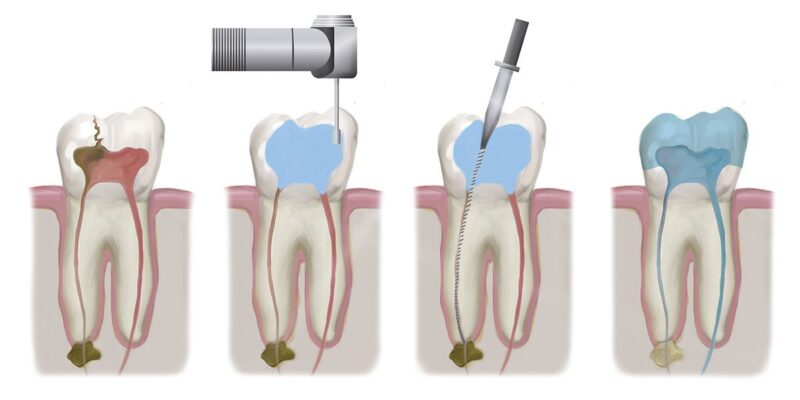Root canals are a highly feared form of dental work with many disagreements about the procedure being incredibly painful and difficult. However, the fact is these treatments are a much-needed dental procedure that saves teeth that are nearly necrosed. Knowing what a root canal requires and why it is needed, as well as what to expect during and after the procedure, can help Philadelphia residents take steps to reduce their anxiety and improve their oral health. The piece discusses the details of root canal treatments, the need for them to be done well, and the kind of care available in dental practice in Philadelphia.
What is a Root Canal?
A root canal is a dental procedure intended to treat infection at the core of a tooth. This treatment consists of removing the infected pulp. It includes cleaning and sealing the root canal system to prevent re-infection. When performed in this manner, the procedure could rescue a tooth that would have to be pulled otherwise.
Common Causes Requiring a Root Canal
Here are a few signs that indicate that a root canal is necessary.
-
Constant Pain:
Serious toothache, especially when eating or exerting pressure.
-
Long Sensitivity:
Your tooth stays sensitive after you take away the heat or cold.
-
Discolored Tooth:
The tooth with the discoloration could be an indication of nerve damage.
-
Swelling and tenderness:
Swelling of the gums around the affected tooth, sometimes with a repetitive pimple on the gums.

The Root Canal Procedure
Here is a breakdown of what happens during a root canal that could help ease any questions or concerns about this well-planned course of action:
Examination and Diagnosis
Your dentist or an endodontist (a dental specialist who can perform root canals) will examine your teeth and take X-rays to see how bad the infection is.
Anesthesia
A local anesthetic is applied to the affected tooth and the area immediately around it, ensuring you are comfortable for the duration of the treatment.
Access Opening
He makes an opening in the crown of the tooth to get to the infected pulp.
Cleaning and Shaping
Once the pulp is removed, the dentist cleans and shapes the root canals and fills them to prevent the pulp from becoming infected again.
Filling
After the canals are cleaned, a biocompatible material, gutta-percha is placed in the canals and the access hole is sealed with an adhesive cement to prevent the re-infection of the tooth.
Restoration
Finally, the hole is sealed using a provisional filling. A crown or another kind of permanent restoration is later placed to protect the tooth and restore function in a future visit.
Post-Procedure Care
It is normal to feel some discomfort or even mild pain after having root canal therapy. Over-the-counter pain relievers, like ibuprofen, can typically ease the discomfort. Your dentist may also recommend antibiotics to make sure that any lingering infection is eradicated.
Here are some important points to consider when on the lookout for root canal treatment in Philadelphia:
Advanced Technology
The majority of dental practices in Philadelphia have modern technology such as digital x-rays, 3D imaging, and advanced endodontic tools to improve the precision and effectiveness of root canal therapy.
Experienced Practitioners
These dentists in Philadelphia have a high level of training in root canals so their patients can receive the best care available.
Patient-Centered Care
Patient comfort and education are in focus at dental practices in Philadelphia. They explain what to expect during procedures and provide kind, customized plans for patients.
Accessibility
There is no waiting in long queues when it comes to the domain of surgical processes, as the patients do have several dental clinics as well as specialists to provide them with high-quality root canal treatment.
Root canal treatments are important to overall health, halting the spread of infection, and remaining functional when it comes to natural dentistry. Philadelphia dentists are highly trained and well-experienced dentistry professionals who offer cutting-edge solutions in oral care. Knowledge of the process, what makes a root canal so important, and what to expect when getting one done can help patients approach the root canal treatment with confidence to facilitate an optimum recovery.

Comments